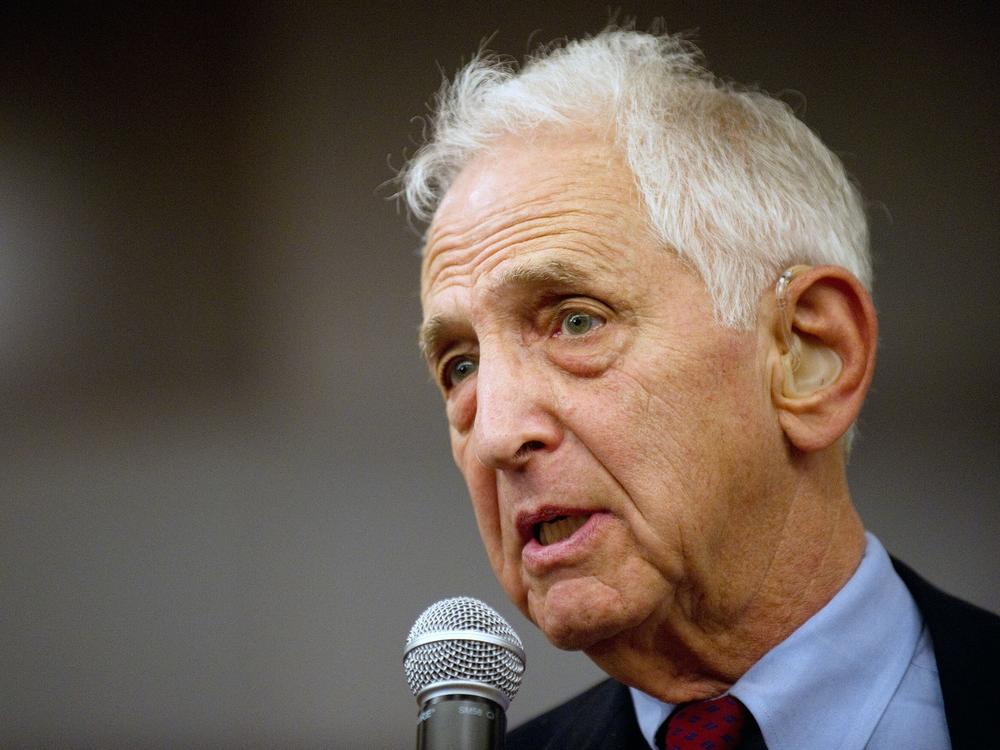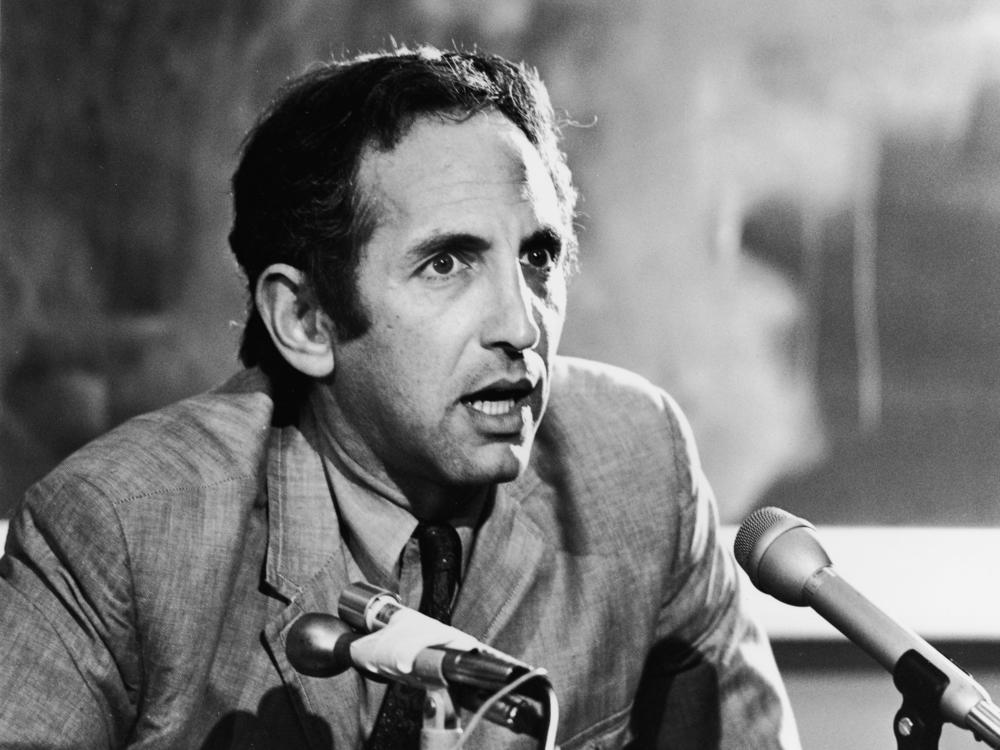Section Branding
Header Content
The Pentagon Papers leaker explains why the Supreme Court draft leak is a good thing
Primary Content
At 91, Daniel Ellsberg is certain of many things. One of them is that unofficial leaks of government documents are fundamental to keeping a check on the most powerful operators of our society.
"Unauthorized disclosures are the lifeline of a republic," he told NPR during a phone interview from his home in Northern California.
And anyone who chooses to take on the burden of sharing such information in the public interest, "is doing this republic a very great service and helping it to remain a republic."
Ellsberg would know.
He was the person who in 1971 leaked the Pentagon Papers to The New York Times (until they were blocked by the courts from publishing the documents) then sneaked them to The Washington Post.
The study – officially called the Report of the Office of the Secretary of Defense Vietnam Task Force – chronicled decades of failed U.S. policy in Vietnam, and laid bare the ways in which the public was misled in how the war was conducted. Ellsberg was a national security analyst at the time and gained access to the classified documents using his top secret clearances.
When he was eventually discovered, he was arrested and became the first person in the United States to be prosecuted under the Espionage Act.
"They tried to put me in [prison] for 150 years," he recalled, laughing.
The charges, however, didn't stick after investigators discovered Nixon administration officials had tapped Ellsberg's phone and broken into his psychiatrist's office to obtain information that would discredit him.
'It's a very good thing that it got out'
Now, watching the fallout of the leak of a Supreme Court draft opinion that suggests overturning Roe v. Wade, Ellsberg acknowledges the extraordinary nature of the recent breach, which seems to have ruptured the trust between the highest court and the public.
"It's obvious why they want to keep it secret, " he said. "No organization really wants to show how the sausage is made or legislation is made, and they prefer to be the only voice on policy to the public."
Fifty years after the Pentagon Papers leak, Americans have been made privy to the internal, secretive discussions of the Supreme Court, exposing the role that politics plays in the justices' rulings.
"The Supreme Court wants to get all the authority it can from hiding the nature of dissension; the details of arguments that people have made one way or the other," Ellsberg explained. But this particular decision is so consequential for the public that it is important they know what is really driving the majority's decision, he added.
That's why, he said, "It's a very good thing that it got out. It was important to be out."
If he was in the leaker's position, Ellsberg said he'd do the same thing.
'The politicization of the court is no secret at this point'
Ellsberg empathizes with Chief Justice John Roberts, who called the release of the opinion "an affront" and "egregious," launching an investigation into the source of the leak.
"But really," Ellsberg said, "the politicization of the court is no secret at this point and for Justice Roberts to pretend there were no Democratic justices and Republican justices, that's really absurd. That notion has been demolished."
He also notes, as many others have, that after Politico published the draft, that the opinion is not a classified or secret document, meaning that no law has been broken.
"Strictly speaking, the law under which I was prosecuted, the Espionage Act, has never been confirmed by the Supreme Court to be constitutional, as applied to unauthorized disclosure to the American public, telling the truth to the public."
There are no laws preventing the release of documents from within the Supreme Court
Roy Gutterman, a communications law professor and director of the center for free speech at Syracuse University, agrees that neither Politico or the leaker will likely face criminal charges.
As of now, there is no law prohibiting such a public outing from within the Supreme Court, only centuries of decorum and unwritten internal standards. Additionally, when considering legality of the publication of the Ellsberg's Pentagon Papers under the First Amendment, the Supreme Court prepared to rule that the government could not block a publication from publishing the documents.
Gutterman notes there are fewer protections for leakers, meaning there could be more potential liability for such actors. But he said, in this case "it doesn't appear that there's a clear violation of a specific law."
He added: "When you look at leak investigations they tend to focus on National Security issues and the leaking of a draft opinion is not a matter of National Security."
That is not to say there won't be consequences for the source. Given how few people had access to the draft opinion – by most estimates that figure stands at approximately 50 people, including the nine justices – it's more likely than not that they will not remain anonymous, Gutterman said.
However, the long-term effects go much deeper than the potential repercussions on one person's career, according to Gutterman. "It's an opening for future leaks on hot-button issues ... it's a slippery slope."
"This could happen again and again, which would certainly undermine the independence of the court. And it would certainly stifle some degree of even collegiality and consensus-building among these justices," he said.
Copyright 2022 NPR. To see more, visit https://www.npr.org.


